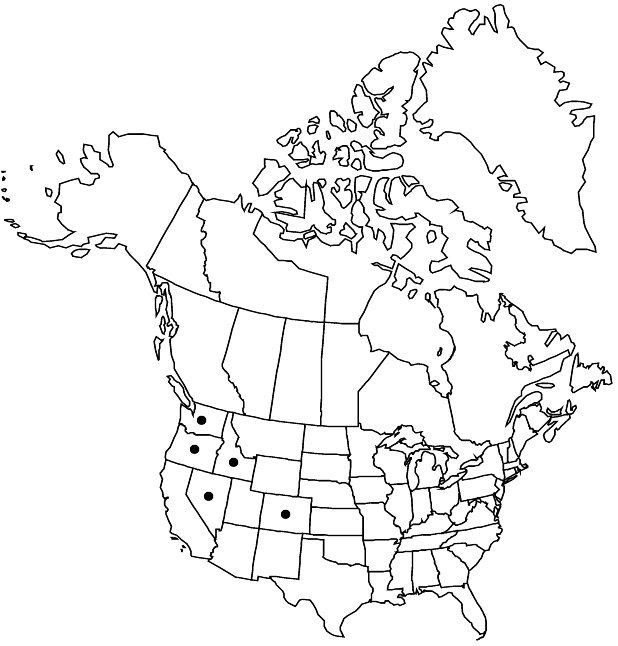Ribes niveum
Edwards’s Bot. Reg. 20: plate 1692. 1834 ,.
Plants 0.5–3 m. Stems erect to sprawling, (rooting at tips), glabrous; spines at nodes 1–3(–6), (2–)5–15(–20) mm; prickles on internodes absent or sometimes numerous. Leaves: petiole 0.5–4(–6) cm, glabrous or pubescent and stipitate-glandular; blade broadly reniform to broadly ovate, 3–5-lobed, cleft 1/3–1/2 to midrib, 0.8–5 cm, base truncate to rounded-cuneate, surfaces finely pubescent or only between veins abaxially, lobes broad, rounded ternately, margins 1 or 2 times crenate-dentate, apex mucronate or apiculate. Inflorescences pendent, solitary flowers or 2–4(–5)-flowered racemes, 4–6 cm, axis glabrous or pubescent, flowers evenly spaced. Pedicels not jointed, 4–15 mm, glabrous; bracts lanceolate, 1.2–3 mm, glabrous or finely ciliate. Flowers: hypanthium white, pale greenish, greenish white, or cream, narrowly campanulate, 1.6–3 mm, glabrous, rarely very sparsely hirsute; sepals not overlapping, sharply reflexed, white or very slightly pinkish, narrowly oblong to narrowly oblanceolate, 5–8 mm; petals connivent, erect, white or very slightly pinkish with red veins, oblong to cuneate-obovate, not conspicuously revolute or inrolled, 1.7–3.2 mm; nectary disc not prominent; stamens 2.5–3 times as long as petals; filaments linear, 6.5–9(–10) mm, finely pilose; anthers cream to greenish, ovate-oblong, 0.8–1.6 mm, apex rounded; ovary glabrous; styles connate 1/2+ their lengths, 8–14 mm, pilose on proximal 1/2–3/4. Berries palatable but sour, yellow-green, becoming blue-black to purple, globose, 5.5–12 mm, glabrous. 2n = 16.
Phenology: Flowering Apr–Jul.
Habitat: Thickets along streams, open hillsides
Elevation: 400-2400 m
Distribution

Colo., Idaho, Nev., Oreg., Wash.
Discussion
Ribes niveum was thought to be extirpated in Colorado; it was rediscovered near Cañon City, Fremont County (T. W. Chumley and R. L. Hartman 2000). It is unusual in having anthers glabrate or finely pilose or arachnoid, closing and extended in fruit.
Selected References
None.